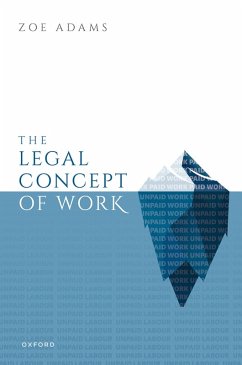
Structural Injustice and Workers' Rights (eBook, ePUB)
Versandkostenfrei!
Sofort per Download lieferbar
45,95 €
inkl. MwSt.
Weitere Ausgaben:

PAYBACK Punkte
23 °P sammeln!
When discussing exploitation in workplaces, governments typically deploy a rhetoric of personal responsibility: they place attention on employers who take advantage of workers, or on workers who choose non-standard, precarious work arrangements. On this account, the responsibility of the state is to address the harm inflicted by private actors. This book questions that approach and develops the concept of 'state-mediated structural injustice at work': a phenomenon which manifests when legislation that has an appearance of legitimacy, in fact has very damaging effects for large numbers of peopl...
When discussing exploitation in workplaces, governments typically deploy a rhetoric of personal responsibility: they place attention on employers who take advantage of workers, or on workers who choose non-standard, precarious work arrangements. On this account, the responsibility of the state is to address the harm inflicted by private actors. This book questions that approach and develops the concept of 'state-mediated structural injustice at work': a phenomenon which manifests when legislation that has an appearance of legitimacy, in fact has very damaging effects for large numbers of people and results in structures of exploitation at work. Using a series of examples such as migrant workers, captive workers, people under welfare conditionality schemes, and other precarious workers, Mantouvalou shows how the law creates these structures of injustice, entrenching long-term, standard, and routine exploitation. She also assesses these examples against human rights principles, including civil, political, economic, and social rights. The ultimate aim of the work is to show that these structures routinely lead to workers' exploitation which may in turn give rise to state responsibility for human rights violations and to argue that there is a pressing need for reform.
Dieser Download kann aus rechtlichen Gründen nur mit Rechnungsadresse in A, B, BG, CY, CZ, D, DK, EW, E, FIN, F, GR, HR, H, IRL, I, LT, L, LR, M, NL, PL, P, R, S, SLO, SK ausgeliefert werden.













